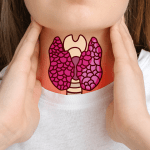Introduction to ADHD and Menopause
Attention Deficit Hyperactivity Disorder (ADHD) is often misconceived as a condition that only affects children, but it persists into adulthood for many individuals. Adult ADHD is characterized by symptoms such as inattention, hyperactivity, and impulsivity, which can significantly impact daily functioning and quality of life. Unlike children, adults with ADHD may face challenges in managing responsibilities such as work, relationships, and household tasks, often leading to feelings of underachievement and frustration.
Prevalence of ADHD in Adult Women
ADHD in adult women has historically been underdiagnosed due to gender bias and a presentation of symptoms that can differ from those commonly seen in men. Women are more likely to exhibit inattentive symptoms rather than the hyperactive-impulsive symptoms that are more easily recognized. This can lead to misdiagnosis or late diagnosis, as their difficulties may be attributed to anxiety, mood disorders, or simply being dismissed as character traits such as being disorganized or forgetful.
Overview of Menopause and Its Impact
Menopause marks the end of a woman’s reproductive years, typically occurring in the late 40s to early 50s. It is characterized by the cessation of menstruation and a decline in the production of hormones such as estrogen and progesterone. Menopause can have a profound impact on a woman’s physical and mental health, with symptoms ranging from hot flashes and sleep disturbances to mood swings and cognitive changes.
The Intersection of ADHD and Menopause
The intersection of ADHD and menopause presents unique challenges. Hormonal fluctuations during perimenopause and menopause can exacerbate ADHD symptoms, particularly inattention and executive dysfunction. Estrogen plays a crucial role in modulating neurotransmitters that are implicated in ADHD, such as dopamine and serotonin. As estrogen levels decline during menopause, women with ADHD may experience a worsening of symptoms or even the emergence of new ones. Additionally, the stress of managing menopause symptoms can compound the difficulties faced by women with ADHD, affecting their personal and professional lives. Understanding the interplay between ADHD and menopause is essential for appropriate diagnosis and treatment.
Biological and Hormonal Changes
Role of Estrogen and Progesterone in Brain Function
Estrogen and progesterone play critical roles in the brain’s functioning, particularly in areas that are relevant to attention, memory, and mood regulation. Estrogen, for instance, modulates the activity of neurotransmitters such as dopamine, which is central to ADHD and executive functioning, acetylcholine, which is implicated in memory, and serotonin, which regulates mood. Higher levels of estrogen are linked to enhanced executive function and attention, while low or fluctuating levels are associated with cognitive deficits and neuropsychiatric disorders like Alzheimer’s disease and depression.
Hormonal Fluctuations During Perimenopause and Menopause
As women approach perimenopause and menopause, they experience significant hormonal fluctuations. Estrogen and progesterone levels begin to drop irregularly, leading to changes in the menstrual cycle and eventually the cessation of menstruation. These hormonal changes can contribute to a range of physical and cognitive symptoms, including mood swings, sleep disturbances, and challenges with attention and concentration. The median age for the onset of perimenopause is 47, and it can last several years, with menopause typically occurring around age 51.
Impact of Hormonal Changes on ADHD Symptoms
The hormonal changes that occur during perimenopause and menopause can have a profound impact on women with ADHD. Research indicates that ADHD symptoms may fluctuate in tandem with estrogen levels. For example, during the menstrual cycle, ADHD symptoms tend to be milder when estrogen levels are higher and more pronounced when estrogen levels are lower. This pattern suggests that the hormonal shifts of perimenopause and menopause could exacerbate ADHD symptoms. Women may find that their ADHD medication is less effective during these times, and they may experience an increase in ADHD-like symptoms such as poor attention, mood lability, and sleep disturbances.
While there is a lack of specific research on menopause in females with ADHD, anecdotal evidence and the known effects of estrogen on cognition suggest that menopausal transition may pose additional challenges for women with ADHD. Clinicians should be aware of these potential changes and consider them when treating menopausal women with ADHD, as standard medication dosages and treatment strategies may need to be adjusted.
Symptomatology and Diagnosis
Common Symptoms of ADHD Worsened by Menopause
As women enter the perimenopausal and menopausal stages, typically around their mid-40s to early 50s, they often report an exacerbation of their ADHD symptoms. A significant number of women experience heightened levels of brain fog or memory issues, and overwhelm, which can have a life-altering impact. These symptoms, along with increased emotional dysregulation, time-management difficulties, procrastination, and distractibility, are reported to be more severe during this period than at any other time in their lives. The hormonal fluctuations associated with menopause can lead to a decrease in estrogen levels, which in turn affects the brain’s neurotransmitter activity, exacerbating these ADHD symptoms.
Challenges in Diagnosing ADHD in Menopausal Women
Diagnosing ADHD in menopausal women presents unique challenges. Symptoms such as memory dysfunction, lack of mental clarity, and difficulty concentrating can be indicative of both ADHD and menopause, making it difficult to discern the underlying cause. Additionally, many healthcare providers may not be adequately trained to recognize ADHD in adult women, particularly when symptoms are masked by or attributed to menopause. This can lead to misdiagnosis or incomplete diagnosis, with conditions such as depression and anxiety often being diagnosed in place of, or alongside, ADHD. The overlap of symptoms and the fluctuating nature of hormonal levels during menopause complicate the diagnostic process further.
Late Diagnosis: Recognizing ADHD During Menopause
For some women, the onset of menopause brings ADHD symptoms to the forefront for the first time, leading to a late diagnosis. The average age of diagnosis for these women is 43, with many reporting that they had managed to cope with symptoms earlier in life through compensatory strategies. However, the hormonal changes during menopause can overwhelm these strategies, making symptoms more apparent and disruptive. It is crucial for women experiencing these changes to seek a thorough evaluation from healthcare professionals who are knowledgeable about the intersection of ADHD and menopause. A correct diagnosis can unlock effective treatment options, including medication adjustments, lifestyle changes, and hormone replacement therapy, which can significantly improve quality of life.

From unhappy, dry, and sandpaper to silky, smooth and feeling good. That’s Cleo. Cleo is a 100% natural labial balm to moisture and soothe “your other lips”. Cleo is chemical-free, water-free, pH optimized and helps maintain and restore your delicate labial skin’s natural flora. Ideal for daily use or as needed. Get the most silky, lovable lips ever.
Natural Management Strategies for ADHD in Menopause
Importance of Adequate Sleep and Healthy Sleep Habits
Menopause can bring about sleep disturbances that exacerbate ADHD symptoms. It is essential for women to prioritize sleep and establish healthy sleep habits. Strategies such as maintaining a consistent sleep schedule, creating a restful environment, and avoiding stimulants before bedtime can help improve sleep quality. Adequate sleep supports cognitive functions and can mitigate the impact of ADHD on daily life.
Mental Health Considerations: Anxiety, Depression, and Mood Swings
Menopause can intensify feelings of anxiety, depression, and mood swings, which can, in turn, worsen ADHD symptoms. It is important to recognize these mental health challenges and address them through mindfulness practices, therapy, or support groups. Self-care and emotional regulation techniques can also play a significant role in managing these symptoms.
The Role of Physical Activity and Endorphins
Regular physical activity is a powerful natural strategy for managing ADHD during menopause. Exercise releases endorphins, which act as natural mood lifters and can improve focus and executive function. Incorporating activities such as walking, yoga, or swimming into daily routines can help reduce ADHD symptoms and improve overall well-being.
Stress-Reduction Techniques and Their Benefits
Stress can exacerbate ADHD symptoms, making stress-reduction techniques crucial. Practices such as deep breathing, meditation, and progressive muscle relaxation can help lower stress levels. Additionally, engaging in hobbies or activities that bring joy can serve as a natural buffer against the stressors of menopause and ADHD.
Nutritional Planning and Its Impact on ADHD
Nutrition plays a pivotal role in managing ADHD symptoms. A balanced diet rich in omega-3 fatty acids, protein, and complex carbohydrates can support brain health and reduce symptoms. Women should also be mindful of maintaining stable blood sugar levels and staying hydrated. Consulting with a nutritionist can help in creating a personalized dietary plan that considers the unique challenges of ADHD and menopause.

Bette 100% All-Natural Relaxing Lavender Body Lotion.
Chemical-Free
Your relaxing night time body moisturizer to leave the day’s stress behind. Decompress and wish your body good night with the calming scent of lavender.
Professional Support and Treatment Options
When to Consult a Psychiatrist or Gynecologist
Recognizing when to seek professional support is crucial for women experiencing the dual challenges of ADHD and menopause. It is advisable to consult a psychiatrist when ADHD symptoms become unmanageable or when current medications seem less effective. A gynecologist should be consulted for menopause-related concerns, particularly when hormonal changes exacerbate ADHD symptoms. Early intervention can lead to better management of both conditions.
Collaborative Care Between Psychiatrists and Gynecologists
Collaborative care is essential for women at the intersection of ADHD and menopause. Psychiatrists and gynecologists can work together to provide a comprehensive treatment plan that addresses both hormonal fluctuations and ADHD symptoms. This multidisciplinary approach ensures that medication adjustments, hormone therapy, and other interventions are carefully coordinated for optimal patient outcomes.
Medication Adjustments and Alternative Treatments
Medication adjustments may be necessary during menopause, as hormonal changes can affect the efficacy of ADHD medications. It is important to monitor and adjust dosages under the guidance of a healthcare professional. Alternative treatments, such as hormone replacement therapy (HRT), may also be considered to alleviate menopausal symptoms and potentially improve ADHD symptom management. Additionally, non-pharmacological interventions like cognitive behavioral therapy (CBT) and mindfulness practices can be beneficial in managing the complexities of ADHD and menopause.
When to Seek Medical Attention
Identifying Worsening Symptoms and Their Implications
As women transition into menopause, those with ADHD may notice an exacerbation of their symptoms. It is crucial to monitor any changes, such as increased forgetfulness, difficulty in maintaining focus, or heightened impulsivity. These worsening symptoms can be a sign that your ADHD is being affected by hormonal changes, and they may require medical attention. If you find that your strategies for managing ADHD are no longer effective, or if new symptoms arise that resemble ADHD, it may be time to consult a healthcare professional.
Evaluating the Effectiveness of Current Medications
Medications that once provided relief may lose their efficacy during menopause due to the body’s changing hormone levels. It is important to assess whether your current ADHD medications are still working as intended. If you notice a decrease in their effectiveness, or if side effects become more pronounced, these are signals that your treatment plan may need adjustment. Consulting with your doctor to evaluate your medication regimen is a proactive step in managing your ADHD symptoms during this time.
Symptoms Interfering with Daily Activities
When ADHD symptoms start to interfere with your daily life, it’s a clear indicator that medical attention is needed. This interference can manifest in various ways, such as challenges in completing work tasks, maintaining relationships, or managing household responsibilities. If you find yourself struggling to stay organized, missing appointments, or feeling overwhelmed by routine activities, these disruptions warrant a discussion with your healthcare provider. Seeking help is especially important if these symptoms lead to stress, anxiety, or depression, which can compound the difficulties associated with ADHD and menopause.
In conclusion, it is essential to be vigilant about the changes in your ADHD symptoms as you approach and go through menopause. Keep a detailed record of any new or intensifying symptoms, and communicate openly with your healthcare team about the impact on your life. By doing so, you can ensure that you receive the appropriate care and adjustments to your treatment plan, helping you to maintain your quality of life during this significant life transition.

Popular Read
Conclusion: Navigating ADHD and Menopause
Throughout this article, we have explored the complex interplay between ADHD and menopause, two conditions that can significantly impact a woman’s life. The biological and hormonal changes that occur during menopause can exacerbate the symptoms of ADHD, leading to increased challenges in daily functioning. Common symptoms such as inattention, mood swings, and memory lapses are intensified, making it difficult for women to maintain their personal and professional lives. The overlapping nature of these symptoms can also complicate the diagnosis and treatment of ADHD in menopausal women, as they may be mistakenly attributed solely to the menopausal transition.
Empowerment Through Knowledge and Management Strategies
Knowledge is power, and understanding the relationship between ADHD and menopause is the first step toward effective management. Women equipped with this knowledge can better advocate for themselves when seeking medical care and support. Implementing natural management strategies, such as prioritizing sleep, engaging in regular physical activity, and adopting stress-reduction techniques, can provide significant relief. Nutritional planning also plays a crucial role in managing ADHD symptoms, as a balanced diet can help stabilize mood and improve cognitive function.
The Importance of Personalized Care
Ultimately, the key to successfully navigating ADHD and menopause lies in personalized care. Each woman’s experience with these conditions is unique, and treatment plans should be tailored to individual needs. Collaborative care involving both psychiatrists and gynecologists can ensure that all aspects of a woman’s health are considered. Medication adjustments may be necessary, and alternative treatments should be explored to find the most effective solutions. It is essential for women to monitor their symptoms and seek medical attention if they notice a significant impact on their daily activities.
In conclusion, while the journey through ADHD and menopause can be challenging, it is navigable with the right knowledge and support. By understanding the overlapping symptoms and challenges, women can feel empowered to take control of their health. Personalized care strategies, informed by both medical professionals and self-awareness, can lead to improved quality of life during this transitional period. As research continues to shed light on the intricate connections between ADHD and menopause, the hope is that more targeted and effective treatments will become available, offering women the support they need to thrive.









